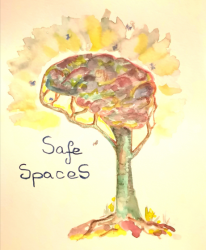
Avalon offers creative and DDP informed sessions for children including their parents and carers. This work is more directive, but has elements of non-directive work within it to support the child's regulation.
The aim of this work is to build the attachment relationship between children and their parents or carers. The sessions are DDP informed and follows Dan Hughes' Dyadic Developmental Practice therapy model. This model focuses on developing therapeutic parenting, relating the parents own attachment histories to support and understand how this has informed their parenting, the use of PACE (Playfulness, acceptance, curiosity and empathy) and attachment and trauma informed therapy with the parents/carers and child.
John Bowlby's attachment theory is still very prominent today in our understanding of children's development and needs. Children can need support with their care-giving attachments for various reasons such as parental separation, a loss, illness or mental health issues in the family. Or from more traumatic experiences such as domestic violence, experience of trauma, abuse, or neglect. Children who have been adopted or fostered often need support with their attachment relationships due to their moves between families and often chaotic and traumatic early experiences. Early experiences have a huge impact on children's development as during the first 3 years of life the brain sets down it's most core neural pathways which can then influence our interactions with others and our understanding of the world for the rest of our lives. Children can be supported though DDP led sessions to build trust and security again in their care-giving relationships which supports their behaviour and emotional regulation, alongside their happiness and feelings of safety. Parents can also feel more capable and understood from therapeutic parenting sessions, reflecting on their child's behaviour and history.

